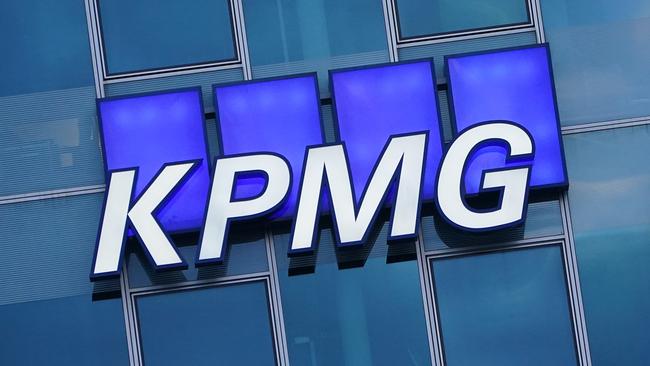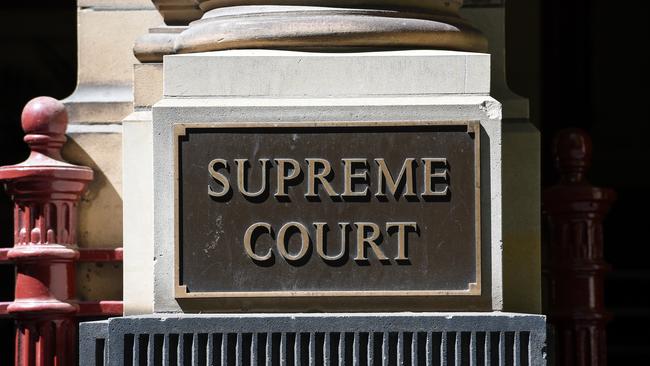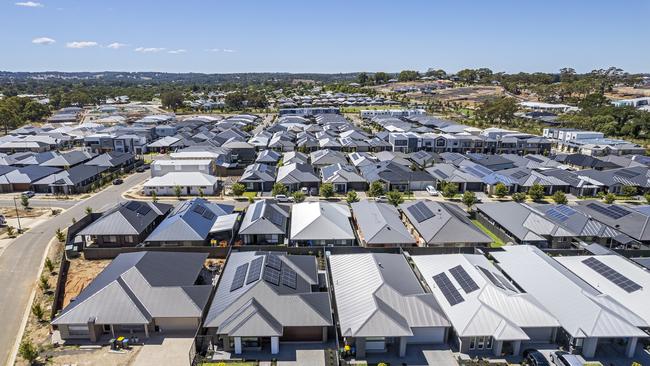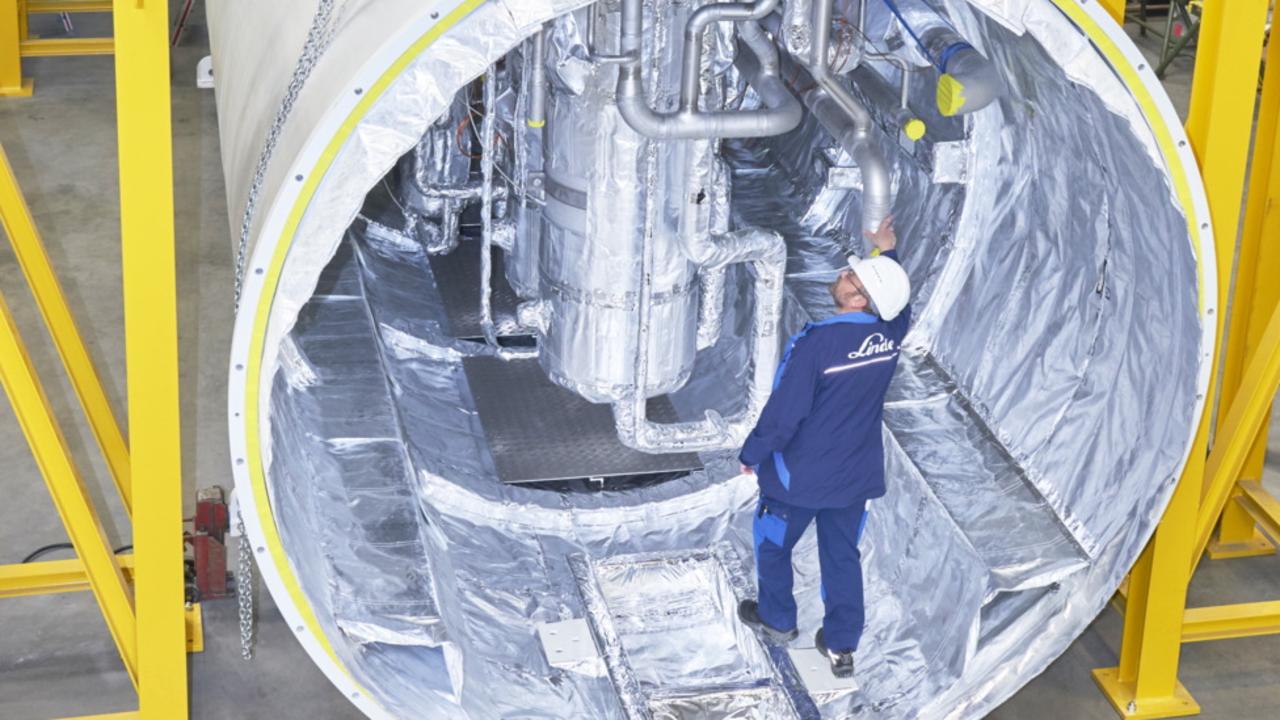Downer’s dramatic KPMG defence could rewrite class action rules
There’s much more at stake in how auditors do business as the engineering firm accuses KPMG of dropping the ball on a invoicing scandal.

Business
Don't miss out on the headlines from Business. Followed categories will be added to My News.
Downer made the switch to KPMG nine years ago after almost two decade relationship with auditor Deloitte.
Now the engineering firm will again on the hunt for a new auditor after it sensationally accused KPMG of dropping the ball as part of the class action linked to botched invoicing in its utilities business.
Downer’s move to plead a proportionate liability defence against KPMG as a key plank to the engineering company’s own defence will be closely watched on how this lays down the parameters of responsibility between auditors and client around financial controls.
If Downer’s defence is ultimately successful, it will surely be used as a playbook in future shareholder class actions that are coming at ASX-listed companies at a rapid pace. For KPMG, a partnership, the payout could run into the tens of millions.
Downer’s approach is unusual: KPMG isn’t named as a defendant in the Downer class action led by law firm Maurice Blackburn and currently making its way through the Victorian Supreme Court. And while it is common for administrators to pursue auditors following a corporate collapse, the proportional liability claim is less so and could rewrite the relationship between an auditor and its client.

Still, the legal tactic means that Downer will have to convince the court that KPMG bears some responsibility for the alleged loss to shareholders stemming from the invoicing scandal.
The hurdle for Downer is not just demonstrate that KPMG’s actions were allegedly the cause of the losses, but the audit firm also had a legal liability to Downer’s shareholders in relation to the alleged financial losses.
Downer filed its defence on Monday and only told KPMG hours before the audit firm was being roped into the case. This left KPMG with no choice but to resign as Downer’s auditor. It comes just weeks after KPMG signed off on Downer’s accounts.
A spokesman for KPMG said the firm was disappointed by the move and intends to vigorously defend the claim.
“We have been open in our engagement with the company throughout this matter and continue to have a high degree of confidence in the audit work performed,” the spokesman said.
The move comes in the midst of intense scrutiny around auditors and how they undertake non-consulting work. The industry is still reeling after a PwC tax partner was found to be briefing his multinational clients about confidential tax rule changes that the same firm was helping to design.
PwC’s Australian business had suffered a near implosion on the back of the scandal, and was forced to hive off its Canberra consulting business to private equity. Although the public mood has firmly shifted against accountants, the courts will take a more sober view.
The Downer case relates to up to $40m in earnings being overstated due to historical misreporting of revenue across one of the engineer’s big maintenance contracts. The issue was discovered in late 2022, prompting a major investigation. At the time, former chief Grant Fenn said earnings had been overstated on the contracts due to the misreporting of revenue when it came to contract variations. Fenn had said Downer’s own control systems failed to uncover the early recognition of revenue going back years. He told analysts revenue has been recorded as earned when it “should not yet be booked”.
Fenn was not linked to the accounting problems, although he retired two months after they came to light. Downer’s former chief operating officer Peter Tompkins took charge in February last year.
In Downer’s latest annual report, KPMG called out the engineering company’s longstanding approached to contract variations noting that in striking deals with clients changes may come in the form of “written, oral, or implied by customary business practice”. KPMG said financial measurement often required a degree of accounting Judgement, and this increases the risk of inappropriately recognising revenue.
Downer had initially been hit by four separate class actions related to the accounting irregularities, although this has now been narrowed down to the Maurice Blackburn claim.
Stokes reinforces Boral bid
Ryan Stokes isn’t taking any chances in his $2bn bid to mop up the remaining stake in Boral. Within weeks of his Seven Group launching the bid, Stokes has already issued a small sweetener – of sorts.
He has dropped all the conditions of his $6.25 a share bid and promised to fast-track payments to all Boral’s shareholders. Stokes continues to take a carrot and stick approach in his bid, meaning the full price will be paid only if certain thresholds are met, including securing a recommendation from the Boral board and passing the 90 per cent threshold.
Stokes is keen to get moving with his buyout that offers little by the way of a takeover premium. The urgency has been heightened given he is threatened to be upstaged by a French interloper.

Just days after launching his buyout, Paris-based building materials major Saint-Gobain tabled a knockout $4.3bn all cash offer for rival building materials player CSR. That bid won the immediate backing of CSR’s board given the hefty premium with an implied enterprise value to earnings ratio of 12.9-times.
The nature of Boral and CSR’s businesses have diverged in recent years, so they no longer go head-to-head on parts of the building materials chain. The French deal has pushed up the value of the sector and compares to Seven’s offer that ranges between 12.1 times and 12.5 times at the top end.
Boral these days is focused on upstream materials like concrete, quarries and asphalt. CSR is more directly tied to the property market with its downstream products including plasterboard and roofing materials. At CSR, Saint-Gobain is offering a dividend (Boral is some way from paying dividends) and a ticking fee of 2 cents a share monthly increase for any delay beyond the end of June.
In making the bid, Saint-Gobain’s global boss Benoit Bazin highlighted the potential for fast-paced growth in Australia’s housing market, and he is betting this will support domestic construction for years to come. Specifically, the Saint-Gobain chief executive pointed out Australia’s construction output will grow at an annualised rate of 3.4 per cent until the end of the decade. This compares to 2.6 per cent for the US and 1.9 per cent for the average of the OECD.
Fast cash
Boral’s lead independent director Rob Sindel was CSR’s chief executive for nearly a decade until 2019 and no doubt will be eyeing off the terms given to his rival employer.
Boral has not yet named who will be chairing its committee of independent directors in assessing the bid, although the company has told minority shareholders to take no action in response to the Seven offer. A target statement is expected to be finalised by March 19.
Under Seven’s terms, cash represents just 25 per cent of Seven’s offer price with the balance made up of scrip. Seven has now included a share sale facility that designed to give more than 44,000 smaller retail investors and bigger institutions a quick way to cash out (including rapid transfer of Seven Group shares). However the full payment will still depend on whether Seven can cross the 90 per cent mark,
Seven’s bid came just as confidence has been boosted in Boral’s outlook, ironically under Stokes’ very own hand-picked CEO Vik Bansal. The new Boral boss has pushed through a round of price rises to pump up margins. Bansal also is looking to build out recurring revenue from Boral’s vast holdings of surplus property.

Seven is seen as extracting more benefits from buyout given the possible overlap with its Coates hire business as well as tapping the full free-cash flows Boral is now generating. (Some of these can be put to use in other parts of Seven’s portfolio of businesses).
Australia’s building materials sector is firmly in play giving with Irish major CRH last week also secured board backing for its friendly $2bn move on concrete player Adelaide Brighton.
Stokes knows he has to be careful not to bid against himself, given his existing 71.6 per cent controlling stake in Boral means a rival bidder is unlikely to emerge. But he could be facing resistance from Boral’s rusted on minorities.
With everyone betting on Australia’s strong construction pipeline, Boral’s investors are now asking whether it’s in their interest to trade in their relatively high-valued shares narrow focused business for lower-valued Seven shares that come with an exposure to mining and energy. Stokes is hoping he can convince them to come along for the ride.
johnstone@theaustralian.com.au
Originally published as Downer’s dramatic KPMG defence could rewrite class action rules



